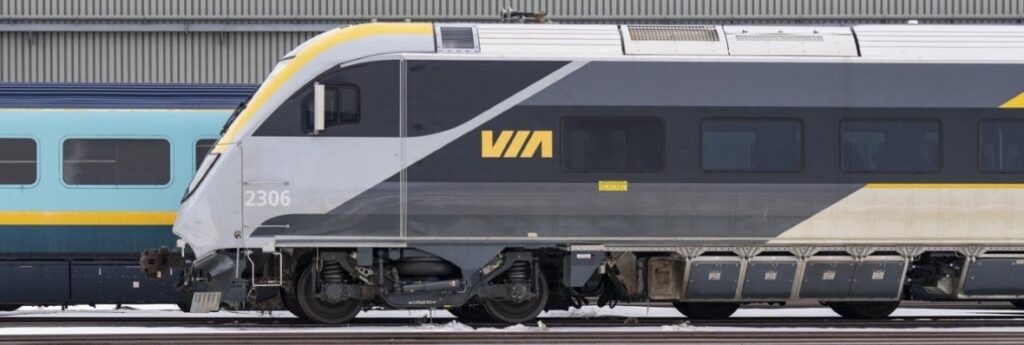Via Rail notched a big jump in ridership last year, continuing a three-year trend ahead of an expected record number of customers in 2024. In its annual report last week, the Crown corporation said some 4.1 million passengers hopped aboard its trains in 2023, a one-quarter jump from the year before. The higher demand boosted revenues by 29 percent to $430.7 million.
CEO Mario Péloquin said he was confident that Via will exceed pre-pandemic customer levels this year.
“Canadians love and use the train, and the numbers back it up. This year, we expect to surpass the record ridership of over five million passengers that Via Rail recorded in 2019,” said Péloquin, who stepped into the top spot last June,
Despite last year’s jump in ridership, Via’s operating loss increased 8% year-over-year to $381.8 million. The loss came even after a 15% boost in government funding to $773 million. The organization has not reached a full-year profit since 2017, and much longer if government funding is excluded.
Operating expenses rose 18% in 2023 to $812.5 million while capital expenditures jumped 23% to $391.2 million as Via spent more to ramp up service.
Via cited “higher costs directly associated to the additional frequencies” as well as cost increases owing to inflation. Via also spent 21% more last year on fleet replacement and put money into a reservation system upgrade that was launched in November.
Péloquin noted the difficulties of operating on lines primarily owned by private-sector railways.
“On the Montreal-Ottawa line, where we control and maintain the majority of the tracks, our trains are on time about 95 per cent of the time, compared to less than 60 per cent for the rest of the network,” the CEO said in the report.
Ninety-six percent of passengers and more than four-fifths of revenue in 2023 stemmed from the corridor between Quebec City and Windsor, Ont. A new fleet of trains introduced there last year enhanced accessibility and upped the frequency of service on the popular route, said Via chairperson Françoise Bertrand.
A dozen of the 32 new train sets – a locomotive, four coaches and a “cab car” – had begun to roll between Toronto, Ottawa, Montreal and Quebec City as of Dec. 31. The trains come via a $989-million contract with Siemens Canada, the Oakville, Ont.-based division of the German technology giant.
On its long-haul routes beyond the Windsor-Quebec City corridor, Via has said fleet replacement is urgently needed on trains that date back to the 1950s and break down periodically.
“Significant investments in our non-corridor fleet will be made to maximize capacity and reliability until a new fleet can be put in service,” Via said in its report.
The government has vowed to provide new funding to replace Via Rail’s aging fleet on routes outside the corridor running between Quebec City and Windsor – an amount has not yet been specified due to an upcoming procurement process.
Beyond the main corridor, subsidies range between $680 and $1,015 per passenger versus $55 per passenger on average within it. The per-passenger amount varies each quarter based on ridership levels, but long routes with relatively low passenger numbers consistently carry high costs – particularly when 70-year-old trains run on them.

